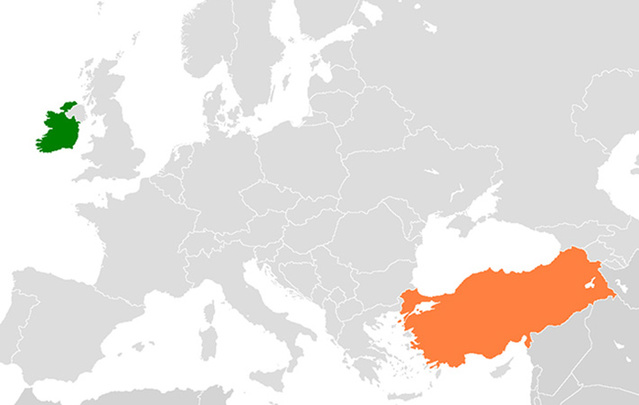A 2010 study revealed that many Irish men may be able to trace their roots back to Turkey. Focusing on the role of the Y chromosome — which is passed from father to son — the research indicates Turkish farmers arrived in Ireland about 6,000 years ago, bringing agriculture with them. And they may have been more attractive than the hunter-gatherers whom they replaced.

The genetic patterns for Irish females differ from those of men. Patricia Balaresque — lead author of the study — told the London Times:
"Most maternal genetic lineages seem to descend from hunter-gatherers. To us, this suggests a reproductive advantage for farming males over indigenous hunter-gatherer males during the switch to farming."
She added:
"Maybe, it was just sexier to be a farmer."
Assignment
The results of the above study may lead us to the origins of Turkey Irish. Dr. James Bender mentions this secret language on December 31, 1944 in one of his articles in New York Times Magazine. Reportedly, the spoken language is used by English children to talk secretly about things that are not intended for the ears of adults.
To translate a message into Turkey Irish, all you have to do is insert ab before each sequence of consecutive vowels. However, if the sequence of vowels starts with an uppercase letter, this letter is replaced by its lowercase version and Ab is inserted before the sequence of vowels. As vowels, we consider the letters a, e, i, o and u (both their lowercase and uppercase versions). You are asked to:
-
Write a function isvowel that takes a single character as its argument. The function must return a Boolean value that indicates whether or not the given character is a vowel.
-
Write a function encode that takes a word or sentence as its string argument. The function must return the given word or sentence, translated into Turkey Irish.
-
Write a function decode that takes a Turkey Irish word or sentence as its string argument. The function must return the original word or sentence.
Example
>>> isvowel('a')
True
>>> isvowel('c')
False
>>> isvowel('E')
True
>>> encode('Fabiano')
'Fabababianabo'
>>> encode('CIA-agent')
'CAbiA-abagabent'
>>> decode('Fabababianabo')
'Fabiano'
>>> decode('CAbiA-abagabent')
'CIA-agent'